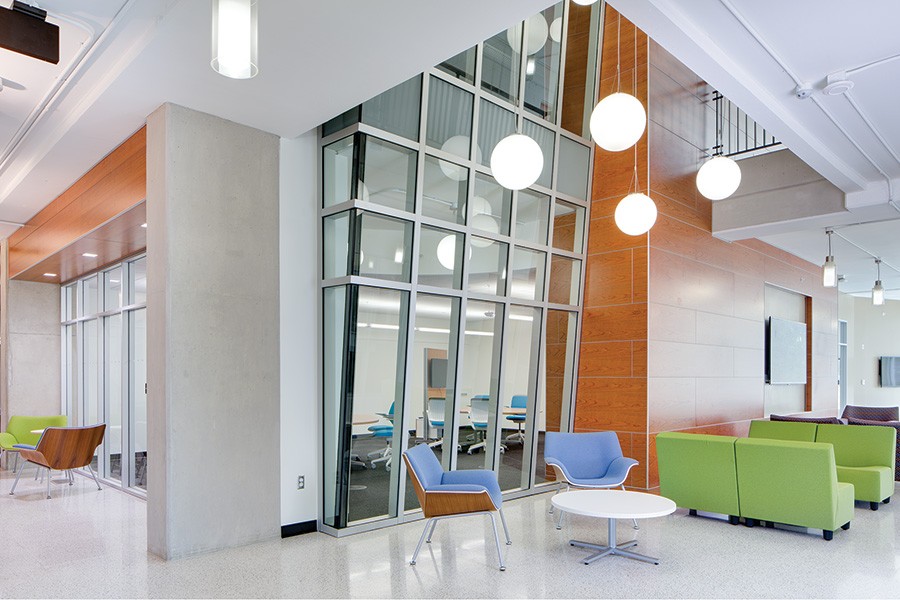Within the walls of Malone Hall, the latest physical addition to the Homewood campus, Johns Hopkins faculty and students plan to enhance understanding of how human genes cause disease, protect the Earth from an asteroid collision, safeguard and systematize sensitive health records, and design computer systems that approach human intelligence to answer questions beyond our current capability. Such grand ambitions will require not only ample brainpower but a lot more eye contact with colleagues says Gregory Hager, chair of the Whiting School of Engineering's Department of Computer Science, one of the building's tenants.
Hager and other Whiting School leadership hope the new facility will usher in an unprecedented era of interdisciplinary collaboration, bringing together under one roof the Department of Computer Science, the Johns Hopkins University Information Security Institute, the Hopkins Extreme Materials Institute, and the Individualized Health Initiative.
"Malone Hall not only brings us all together, it's intentionally designed to let us work much more closely and help us define the department's mission in a more effective way," Hager says.
Facing the Decker Quad, Malone resembles its neighbors with Georgian-themed architecture of red brick, white marble trim, and dormer windows. The building's opposite side has a decidedly more modern look, with a convex glass facade. The interior is sleek, bright, and open, with abundant use of glass doors and polished surfaces set against cherrywood corridor walls.
The 69,000-square-foot, four-story building was made possible by a $30 million gift to the Whiting School given in 2010 by John C. Malone, Engr '64 (MS), '69 (PhD), who is now chairman of Liberty Media Corp. and Liberty Global Inc.








